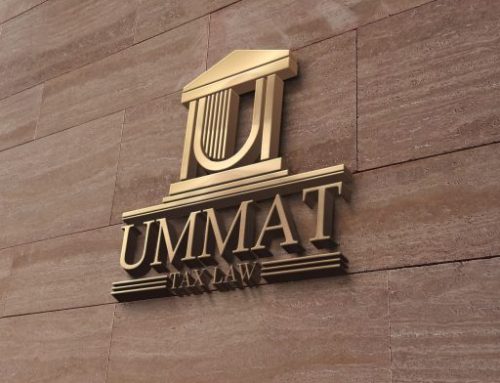Value Shifts Remain Subject to the GAAR
2763478 Canada Inc. v. HMQ 2018 FCA 209
Summary
The Tax Court upheld an assessment of the Appellant, 2763478 Canada Inc., under the General Anti-Avoidance Rule (“GAAR”) to deny the deduction of a capital loss in its 2005 taxation year. The Appellant appealed. The Federal Court of Appeal (“FCA”) found that no errors were committed by the Tax Court and therefore the GAAR assessment should stand.
Facts
The facts are similar to the facts in the Triad Gestco[1] decision. The Court was essentially tasked with determining whether a paper loss could withstand scrutiny under the GAAR.
During the tax year at issue, the Appellant was used as an investment vehicle by Richard Jobin (Mr. Jobin), its sole shareholder. Mr. Jobin also owned Le Groupe AST 1993 Inc. (Groupe AST). The tax plan at issue involved the sale of Groupe AST to an unrelated corporation.
The steps of the plan were as follows:
- Taking advantage of a section 85 rollover, Mr. Jobin transferred his 11,403,607 common shares in Groupe AST to the Appellant, with an adjusted cost base (“ACB”) of $341,413 (the elected amount equal to the value of a promissory note issued in exchange) and fair market value (“FMV”) of $11,143,600.
- Additionally, 10,802,195 Class E preferred shares with a redemption price of $1 each were issued to Mr. Jobin in exchange for shares in Groupe AST.
- On January 6, 2005, Groupe AST added $2,600,000 to the PUC of the common shares held by the Appellant. This triggered the application of subsection 55(2), and the Appellant was deemed to have realized a capital gain of $2,600,000.
- On January 14, 2005, the Appellant transferred all the shares it held in Groupe AST (and other related companies) to 9144-4075 Québec Inc. (9144), a company incorporated 6 months earlier, of which Mr. Jobin was the sole shareholder, for their FMV of $12,847,200.
- As consideration, the Appellant received 9,999,900 Class A shares issued by 9144. The Appellant thereby realized a capital gain of $9,875,137 and a total capital gain of $12,475,137 for its 2005 taxation year (including the deemed gain of $2,600,000 resulting from the application of subsection 55(2)).
- On January 17, 2005, a subsidiary of Groupe ADP—6295231 Canada Inc.—acquired the shares held by 9144 in Groupe AST for $12,847,200. As this amount was equal to the ACB of the shares sold, 9144 did not realize a capital gain as a result of this sale.
- In October of 2005, and as part of an estate freeze, 9144 declared a stock dividend on the Class A shares held by the appellant by issuing 13,000 Class B shares redeemable for $13,000,000.
- Because the redemption price of the Class B shares exceeded the value of the capital stock of 9144, the stock dividend transferred the value of the Class A shares to Class B shares.
- The result was that the Class A shares reflected an unrealized loss of $12,847,299, and the Class B shares reflected an unrealized gain of the same amount.
- The unrealized loss reflected by the Class A shares was realized the following day (October 29, 2005), when they were sold for $1 to 9149-2736 Québec Inc. (9149), a company whose sole shareholder was Mr. Jobin’s son, Maxime Jobin.[2]
- The Appellant then deducted that loss, reducing its gain to nil.
Lower Court Decision
The Tax Court applied the 3-part test for the GAAR under section 245 of the Act. Namely a) was there a tax benefit; b) was there an avoidance transaction; and c) was there a misuse or abuse of the legislation. The Appellant conceded a tax benefit, and the Court found that there was at least one transaction in the series with no bona fide purpose. Thus, an avoidance transaction existed. Lastly, the Tax Court used the reasoning in Triad Gestco to conclude that the benefit resulting from the series frustrated ss. 38(b), 39(1)(b) and 40(1)(b) of the Act.
One of the arguments advanced by the Appellant was that denying the deduction would lead to double taxation, because a gain would be realized by Mr. Jobin in the future resulting from the eventual disposition of the Class E shares. The Court rejected this argument.
Position of the Parties on Appeal
The Appellant alleged errors at the Tax Court. Specifically, the Appellant first argued that there was no “true” tax benefit. Second, the loss did not result from a series of transactions. The exchange of shares in January 2005 between the Appellant and 9144 could not have been part of the series because the decision to use 9144 for estate freeze purposes was made much later. Third, the Appellant argued that each step in the series was bona fide. The share exchange made it possible to sell the Groupe AST shares through 9144. Declaring the stock dividend ensured the value of 9144 was reflected in the Class A shares. The increase in value of the common shares was transferred to the preferred shares to retain the nominal value of the common shares and the last transaction was necessary for the estate freeze for Mr. Jobin’s son.
Finally, the Appellant argued there was no abuse. The argument was that the notion of a “paper loss” was not addressed in the Act, and that there was at least one instance where the Act recognizes what is not otherwise a true economic loss. The Appellant had argued that the capital cost allowance regime allows for the deduction of depreciation where the asset may not have in fact depreciated, or the asset may have depreciated at a slower rate than the rate allowable under the Act.
The Appellant also raised the double taxation argument that was unsuccessfully raised at trial.
The Crown argued that no errors had been made by the trial judge. The purpose of the series of transactions was to create a tax loss. Although the steps of the plan (set out above) complied with the letter of the law, the plan in totality was contrary to the object, spirit and purpose of the Act.
Decision & Analysis
The FCA applied the three part GAAR test and found that it applied.
Benefit
There was no dispute that the recognition and declaration of the capital loss on the sale of the Class A shares was a benefit, since it reduced the tax otherwise payable by the Appellant. The Appellant argued that there was an unrealized gain reflected by the eventual disposition of the Class E shares that should obviate the capital loss. The Court rejected this argument because there was no certain unrealized gain and any gain would belong to Mr. Jobin, and not the Appellant.
Avoidance Transaction
There were three important transactions in the step plan, namely:
- the share exchange on January 14, 2005 between the Appellant and 9144,
- the stock dividend on October 28, 2005, and
- sale of class A shares on October 29, 2005.
Was it a series? The Appellant argued that the share exchange in January was not related to the stock dividend or the sale of Class A shares, and that the length of time between the first and subsequent transactions established that they were unrelated. Whether a transaction is part of a series is a question of fact, and the FCA found that the Tax Court did not err in finding that the three transactions above constituted a series.
Was there an avoidance transaction? The answer was yes. The Appellant had argued that the estate freeze was the purpose of the step plan, but the Tax Court found that the estate freeze could have been achieved if the appellant had received the Class B shares of 9144’s capital stock directly in exchange for the Groupe AST shares and if the Class A shares had been issued directly to 9149.[3] The FCA accepted this to be correct, because the Appellant’s subjective intention was not consistent with the objective factors, and the latter is the relevant consideration to ascertain the motivation behind a transaction. The FCA ultimately found that that not one of the three impugned transactions had a bona fide purpose.
Misuse or Abuse
The final stage of the GAAR analysis involves a two step process, namely, a) determining the object, spirit and purpose of the provisions relied on to obtain the tax benefit and b) determining whether this rationale has been frustrated by the achieved tax benefit. The Court deferred to the analysis of the panel in Triad Gestco to lay the foundation for the object, spirit and purpose of the capital gains regime, and ultimately found that a ‘paper loss’ would in fact frustrate that regime.
The Court dismissed the CCA argument raised by the Appellant, because any excessive or insufficient CCA is eventually dealt with through the mechanisms of terminal loss or recapture.
Thus, the FCA found no errors in the Tax Court decision applying the GAAR to the transactions at issue, and affirmed the current position on the GAAR as it applies to value shift transactions.
[1] Triad Gestco Ltd. v. Canada 2012 FCA 258
[2] The stop loss rule in subparagraph 40(2)(g)(ii) and subsection 40(3.4) of the Income Tax Act (the “Act“) did not apply, and the capital loss of $12,847,300 remained, because 9144 and 9149 were not “affiliated persons” within the meaning of section 251.1 of the Act.
[3] This is similar to the Univar FCA decision — Univar Holdco Canada ULC v. Canada 2017 FCA 207 — where potential alternative transactions are taken into account when deciding whether the GAAR applies.




